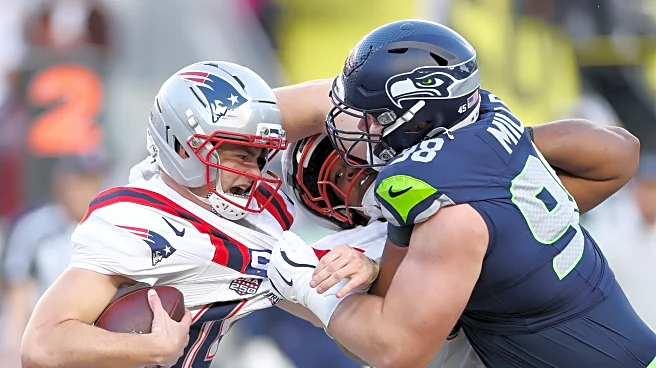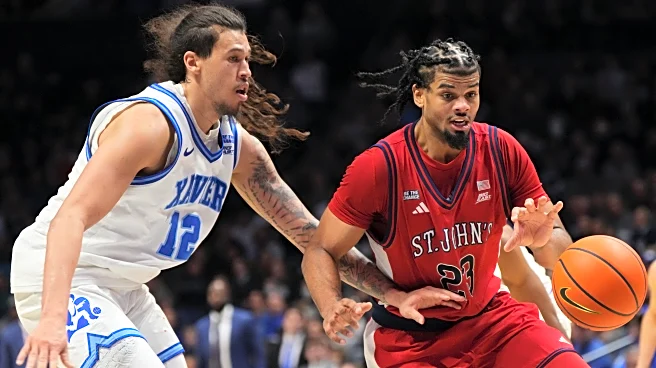What's Happening?
The Boston Celtics have officially waived forward Hason Ward, wing Aaron Scott, and forward RJ Luis as part of their roster adjustments for the upcoming season. These players were released from their Exhibit
10 contracts, a move that aligns with the team's strategy to manage its roster and financial obligations. The Celtics are currently carrying 14 players on standard contracts, with 12 on fully guaranteed salaries and two on partially guaranteed deals. Additionally, all three of the team's two-way slots are filled. The decision not to fill the 15th standard roster slot is influenced by the team's proximity to the luxury tax line, which would impose significant financial penalties for any additional signings.
Why It's Important?
This roster adjustment is significant for the Boston Celtics as it reflects their strategic approach to managing financial constraints while maintaining competitive performance. By waiving these players, the Celtics aim to avoid the luxury tax penalties that would arise from filling the 15th roster slot. This decision underscores the team's focus on fiscal responsibility, which is crucial for long-term sustainability in the NBA. The waived players are expected to join the Maine Celtics, the team's G League affiliate, where they can continue to develop their skills and potentially earn bonuses. This move also highlights the importance of the G League in providing opportunities for player development and maintaining a pipeline of talent for the main roster.
What's Next?
The waived players, Hason Ward, Aaron Scott, and RJ Luis, are anticipated to report to the Maine Celtics, where they will be eligible for bonuses if they spend at least 60 days with the team. This provides them with an opportunity to continue their professional development and potentially rejoin the main roster in the future. For the Boston Celtics, the focus will remain on optimizing their current roster while keeping an eye on financial implications. The team's decision not to fill the 15th roster slot early in the season suggests a cautious approach to managing salary cap and luxury tax considerations, which could influence future roster decisions and player acquisitions.
Beyond the Headlines
The Celtics' decision to waive these players and manage their roster within the constraints of the luxury tax line reflects broader trends in the NBA, where teams are increasingly focused on financial efficiency. This approach not only impacts player contracts and team composition but also influences league-wide dynamics, as teams strive to balance competitiveness with fiscal prudence. The use of Exhibit 10 contracts and the G League as a developmental platform highlights the evolving strategies teams employ to cultivate talent while navigating economic challenges.









